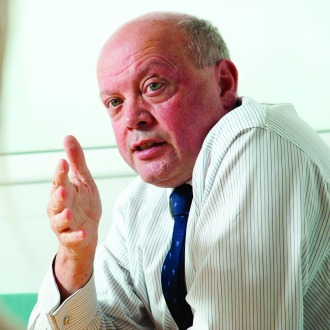Practices could be placed in ‘special measures’ if they perform poorly in their CQC inspections, which could mean partners have to answer to improvement directors or may lose some administrative powers, under a new scheme currently being developed by the CQC.
In hospitals the scheme can see boards stripped of decision making and administrative powers, but the details for how the scheme would be applied to GPs are still being developed.
The chief inspector of general practice, Professor Steve Field, has said that they have ‘started work’ on a system to tackle ‘inadequate GPs’ but that full details will not be available until later in the summer.
Health secretary Jeremy Hunt is expected to announce details of how the scheme will be applied to care homes tomorrow.
Related stories
What can GPs expect from the new-style CQC inspections?
CQC using untrained GP inspectors to ‘fill in gaps’ on inspections
GPC asks whether CQC ‘can be trusted’ after it claims broad support for Ofsted-style ratings
Professor Field said: ‘We have started work on a system for what we should do to tackle inadequate GP services. This work draws on the experience from our new-style GP inspections and the data we collect and analyse about services.’
‘We are working very closely with NHS England. GPs and the bodies that represent them such as the BMA and RCGP, the GMC and people who use GP services will all be involved in this work. We will make an announcement about what GP special measures could look like later in the summer.’
GPC chair, Dr Chaand Nagpaul said that patients should be able to expect ‘consistent’ care standards, but that they shouldn’t be achieved through creating a ‘counterproductive blame culture’.
Dr Nagpaul said: ‘The overwhelming majority of the 8000 GP practices across England provide an excellent service to the nearly one million patients who walk through surgery doors on a daily basis.’
‘We must understand and address the reasons why a few practices might be in difficulty, with the focus being on providing support and enabling improvement to deliver safe and quality care to patients.’
‘However, it is important not to create a counterproductive blame culture based on isolated examples that would wrongly damage patient trust in wider GP services.’
Dr Michael Dixon, chair of the NHS Alliance told Pulse that the scheme could help general practice by removing ‘bad apples’ who provide ammunition for negative stories, but that it shouldn’t be ‘punitive’.
Dr Dixon said: ‘There does need to be an assurance process that every practice is of a minimum standard. Otherwise the public can start questioning the quality of general practice; people can condemn us on the basis of an odd story or two.
But if we can say, there is this assurance process, and that every practice is of above a given standard – and i think that’s good for the rest of us. To put it bluntly, one or two rotten apples can put their mark on all the rest of general practice.
He added: ‘This should not be punitive in the first instance, [for those in special measures] I think it will be initially under close scrutiny, like in hospitals under special measures, but I think will also have a period of intensive care as well.’
This article was edited at 17:15, 15 July to include further comment and ammend the CQC statement.
Pulse July survey

Take Pulse’s July survey and have the chance to win a Samsung Smart TV.
The survey covers a range of areas, from prescription charges to mental health, and discrimination to PMS reviews.
Pulse October survey
Take our July 2025 survey to potentially win £1.000 worth of tokens













